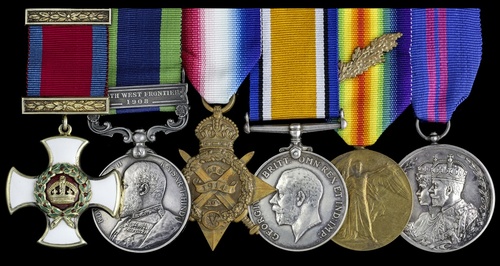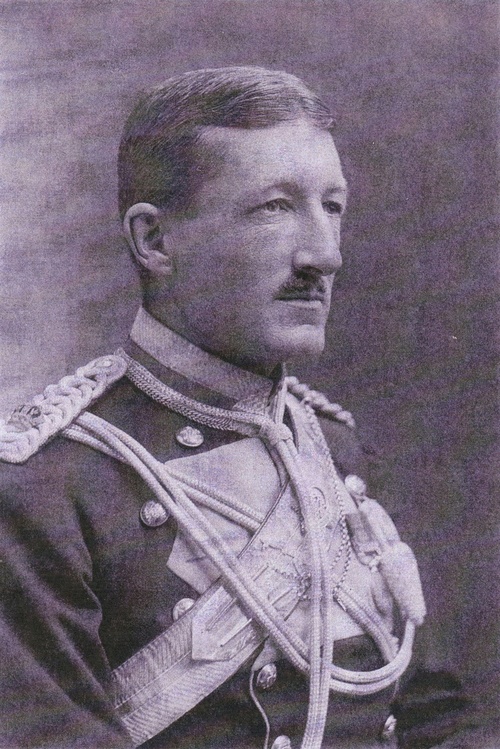Auction: 19001 - Orders, Decorations and Medals
Lot: 545
An immediate 1918 D.S.O. group of six awarded to Lieutenant-Colonel D. H. McNeile, 19th Lancers (Fane's Horse)
Distinguished Service Order, G.V.R., silver-gilt and enamel, with top riband bar, with pin removed for mounting purposes; India General Service 1908-35, 1 clasp, North West Frontier 1908 (Captn. D. H. McNeile, 19th Lancers); 1914 Star (Maj. D. H. McNeile, 19/Lncrs.); British War and Victory Medals, with M.I.D. oak leaves, erased; Delhi Durbar 1911, unnamed as issued, the I.G.S. with light edge knocks, otherwise good very fine (6)
D.S.O. London Gazette 4 October 1919 (Egypt):
'On the 19th/20th September 1918, he, with his regiment, covered a distance of some 90 miles from Selmeh to Jisr Mujamia, within 48 hours, during which he seized and prepared for the demolition of the bridge at Jisr Mujamia by daylight. This performance included two consecutive all-night marches over difficult country, and during the whole period there was practically no rest for man or horse. He did fine work.'
Donald Hugh McNeile was commissioned into the Indian Army on 10 July 1901 and was promoted Captain on 17 February 1906, seeing active service on the North West Frontier during 1908 (Medal & clasp). Advanced Major and Squadron Commander on 13 February 1909 and afterwards present for the 1911 Durbar (Medal), he would serve in France from 12 November 1914, with his unusual 1914 Star being authorised and issued by the India Office.
It would be for his unfaulting service in Egypt and Palestine that McNeile would gain his laurels, gaining a brace of 'mentions' (London Gazette, 13 November 1916 & 20 October 1918 refers). The regimental history provides further detail on the actions which would earn an immediate D.S.O.:
'It had been a fatiguing march, about a hundred miles in forty-eight hours, and the second night in succession that the regiment had been on the move. The men were dog tired. Some fell asleep as they rode until they fell off; then slept where they lay until prodded up and put on to their saddles. For a great part of the distance they had to dismount and lead their horses up and down the rocky hillsides.
It was a march of which the regiment may justly be proud. General Sir George Barrow, commanding at that time the 4th Cavalry Division, writes:
"It was a remarkable performance, especially when one considers that the regiment had only just come out of the deadly climate of the Jordan Valley in summer, and a series of night marches, and that in this last effort they were four consecutive nights on the move."
The Colonel McNeile well deserved the immediate award of the Distinguished Service Order with which he was invested at Damascus.'
Commandant of the regiment from February 1917-February 1920, he latterly took retirement and lived on Brompton Square, London; sold with copied research and portrait photograph.
Subject to 20% VAT on Buyer’s Premium. For more information please view Terms and Conditions for Buyers.
Sold for
£1,700







